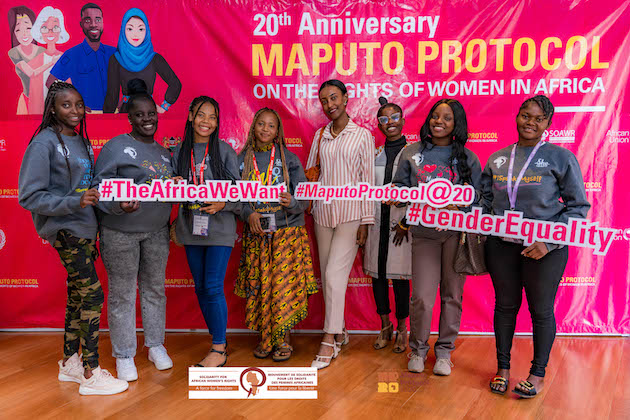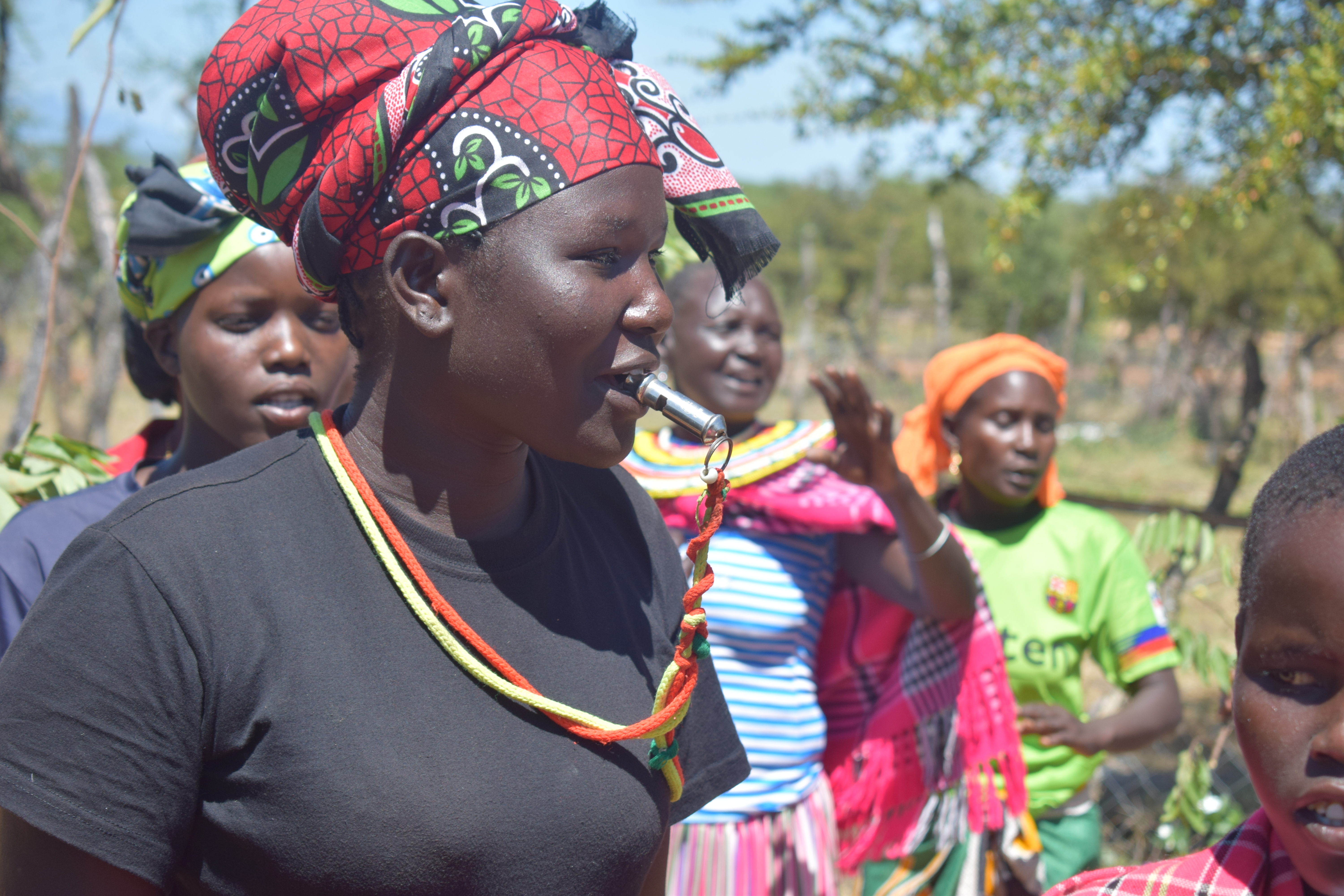NAIROBI, Aug 09 (IPS) – It promised to be the most defining, groundbreaking, and transformative protocol on African women’s rights. Specific in its approach, broad in its reach, and unique in its all-encompassing nature, covering issues such as HIV/Aids, widow inheritance and property disinheritance in a most unprecedented manner.
To halt and reverse the systemic and persistent gender inequality and discriminatory practices against women in Africa, the African Union Assembly adopted the Protocol to the African Charter on Human and Peoples Rights on the Rights of Women in Africa 2003 in Maputo, Mozambique.
The Maputo Protocol was designed in line with the realities of the plight of women on the continent. Providing tailor-made solutions to lift women from beneath the crushing weight of a cultural system that disadvantages women from birth. Twenty years on, it is time to take stock.
“The 20th Anniversary of the Maputo Protocol is a historical advocacy moment for women’s rights advocates. It offers an opportunity to demand from African Governments real and tangible change for women and girls in their countries,” Faiza Mohamed, Africa Regional Director of Equality Now, tells IPS.
“By acceding to the Maputo Protocol, lifting reservations, fully domesticating, and implementing the Protocol, and ensuring their compliance with accountability processes. Beyond this, it signifies the generational changes over two decades and points to the need to reflect on future generations and to future-proof the Maputo Protocol and the SOAWR Coalition.”
The Solidarity for African Women’s Rights (SOAWR) is a coalition of over 80 civil society organizations, a pan-African women’s movement that pushes for accelerated ratification of the protocol in non-ratifying states while holding governments accountable to deliver for women in line with the Protocol.

Mohamed stresses that the SOAWR Coalition is a remarkable testament to the power of women’s organized movements and their capacity to influence transformative policy agendas, leaving a lasting impact.
“Through its persistent efforts, SOAWR has successfully kept the protocol on the agenda of AU member states, leading to significant influence as 44 out of 55 African states have ratified or acceded to the Maputo Protocol. This achievement has turned the Protocol into a potent public education tool for women’s rights, both at the national and grassroots levels,” she explains.
“Notably, there has been substantial progress in the advancement of national jurisprudence on women’s rights, as well as in the empowerment of women themselves. Thanks to the coalition’s effective public sensitization campaigns, formerly taboo subjects like sexual and reproductive health rights, female genital mutilation, and polygamy have become open and advanced topics in various countries.”
The coalition has demonstrated how much women and like-minded partners can achieve working in solidarity. Additionally, each organization continues to push the women’s agenda forward – pushing and pulling in the same direction, to realize the dream of a society where women are fully represented in every corner of the spaces they call home.
“The Maputo Protocol comes out of the African feminist fire, and we need to keep it burning. That it is one of the most progressive legal instruments that came out of Africa. That it represents our diversity and our strength because we are not a monolith. It also represents the power of collective action and also the dream of the Africa we want,” says Nigerian-born Becky Williams, a young woman who now lives in Uganda and works for Akina Mama wa Africa.
Equality Now is currently advocating for adopting the Multi-Sectoral Approach in implementing the Maputo Protocol. The Multi-Sectoral Approach (MSA) provides a framework for convening different sectors within governments and actors outside of government in a joint effort to implement women’s rights as provided for in the Protocol.
Mohamed emphasizes that if recognized and embraced by governments and civil societies, the Maputo Protocol can be a powerful tool for change as it offers women a tool for transforming the unequal power relations between men and women that lie at the heart of gender inequality and women’s oppression.
To coincide with the Maputo Protocol’s 20th anniversary, SOAWR, Make Every Woman Count (MEWC), and Equality Now released a report titled, “Twenty years of the Maputo Protocol: Where are we now?” Providing a detailed account of progress made thus far, successes, challenges and recommendations.
Regarding rights related to marriage and child marriage, the report finds that several countries have adopted constitutional reforms related to the prohibition of forced marriage. For example, the constitution of Burundi guarantees marriage equality. The constitutions of Guinea, Malawi, Uganda, and Zimbabwe set the legal age of marriage at 18 years. AU Member States have enacted legislation on rights related to marriage.
On economic and social welfare rights, half of the African states maintain constitutional provisions guaranteeing equal remuneration for work of equal value or the right to fair or just pay. More than half of African states have laws mandating equal remuneration for work of equal value.
Regarding health and reproductive rights, almost all African states maintain constitutional provisions related to health and/or health care, and many enshrine the principle of non-discrimination based on health. Notably, six countries, including Angola, Ethiopia, Ghana, Kenya, South Africa, and Zimbabwe, enshrine rights related to reproductive health care, such as access to family planning education or reproductive/maternity care.
While women’s rights have come a long way, the report stresses that there is a long way to go and makes specific key recommendations, such as the need to address the right to abortion and treat each case as espoused in the Protocol. It also suggests that the Maputo Protocol should be used to protect women and girls’ reproductive health rights and advocates that Member states remove laws that fail to protect reproductive health rights.
It advocates for the passing of family laws to protect women’s rights before, during, and after marriage and establish special courts to deal with complex marriage issues. In addition, it suggests that Governments implement regional and international treaties such as the Maputo Protocol and educate women and girls on these.
It would like to see programmes that allow young women to return to school after giving birth promoted and demands that early marriage be criminalized, and customary law is adapted so that it no longer defines what happens to women in marriage.
It asks governments to provide universal health services and insurance access, especially for pregnant, vulnerable, and/or specially protected women. It requires member states to improve infrastructure, training, and equipment for health services in rural areas.
Equally important, the protocol includes the empowerment of women and girls to realize their sexual and reproductive health rights through awareness campaigns delivered in communities and schools and wishes to see menstrual hygiene management incorporated into national legal frameworks through awareness-raising activities from more actors, especially parliamentarians.
IPS UN Bureau Report
Follow @IPSNewsUNBureau
Follow IPS News UN Bureau on Instagram
© Inter Press Service (2023) — All Rights ReservedOriginal source: Inter Press Service
Check out our Latest News and Follow us at Facebook
Original Source

